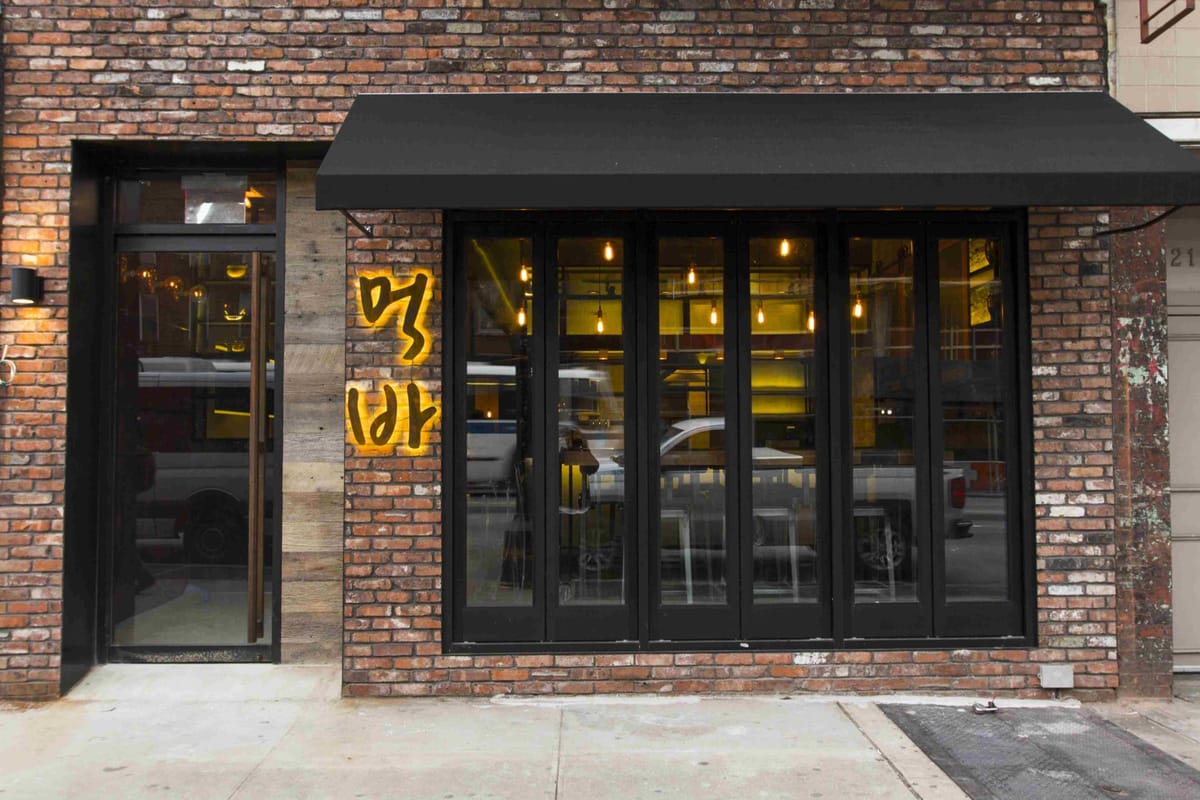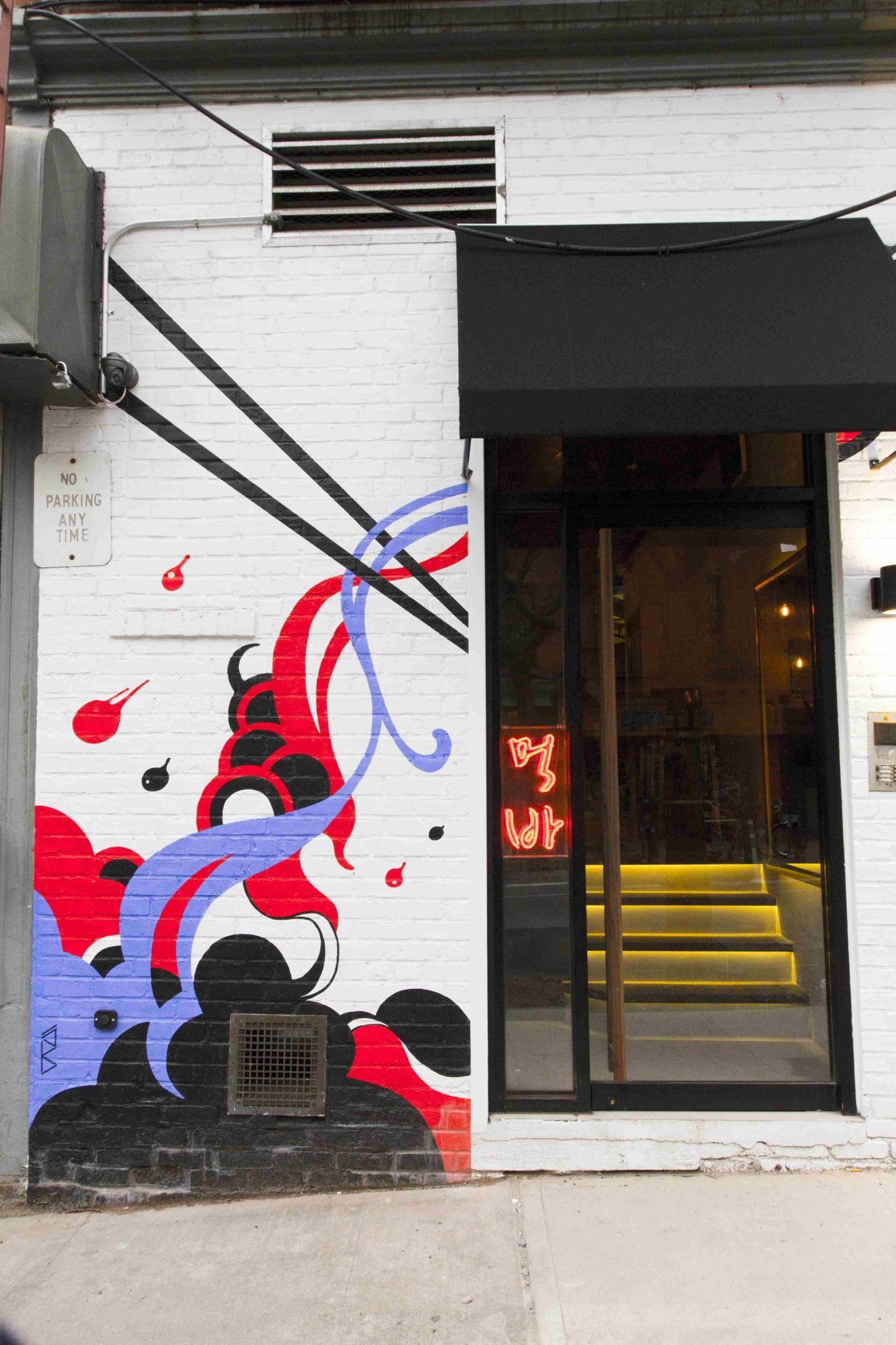“Korean Soul Food” Spot mŏkbar To Open On Flatbush On Wednesday


One of Zagat’s 2015 30 Under 30 “Rock Stars,” chef Esther Choi, is bringing mŏkbar, her popular Chelsea Market ramen spot, to Brooklyn.
Opening Wednesday, February 8th at 212 Flatbush Avenue (at Bergen) next door to the newly opened Snowdays, the 2,000-square-foot, 60-seat restaurant will focus on everyday home-style Korean cuisine and the traditional Korean soul food staple “jip bap.” Each jip bap meal is made up of a protein-centric dish accompanied by a selection of smaller complementary vegetable dishes (banchan). “Jip” means “house” and “bap” means “rice,” but often refers to “food” or a “meal.”
Menu highlights will include house made kimchi, ssamjang sauce and rice, Kalbi Jim (braised short rib marinated in soy sauce, sesame oil, and spices with Asian pear), Samchi Jorim (salted mackerel simmered in spicy soy sauce with daikon radish), Kimchi Jaeyook, (thinly sliced spicy pork and caramelized kimchi), and “mandu,” handmade dumplings served with garlic chive dipping sauce. Choi will also serve her signature bowls of ramen in the Brooklyn location, showcasing her unique combinations of Korean soups with fresh, custom-made noodles.

mŏkbar Brooklyn will also feature “anju,” small plates that are essential to Korean drinking culture—perfect snacks for those situated at the dark wood bar overlooking Flatbush Avenue through a wall of windows which will be opened during warmer months. Anju options include Ho’ Cake (a crispy bun filled with pork belly served with kimchi hot sauce), Lentil Jeon (ground lentils/mung beans, smoked bacon, kimchi, bean sprouts, onion and scallion served with soy dipping sauce), and Tteokboki (a classic Korean street food consisting of chewy rice cakes made with brown butter, minced pork, and house made white kimchi).
An amalgamation of contemporary urban/rustic design and traditional Korean accents, the new space features exposed brick, Edison lightbulbs, reclaimed wooden tables and booths alongside clay pottery, metal service vessels, flatware, and chopsticks all imported from Korea.



